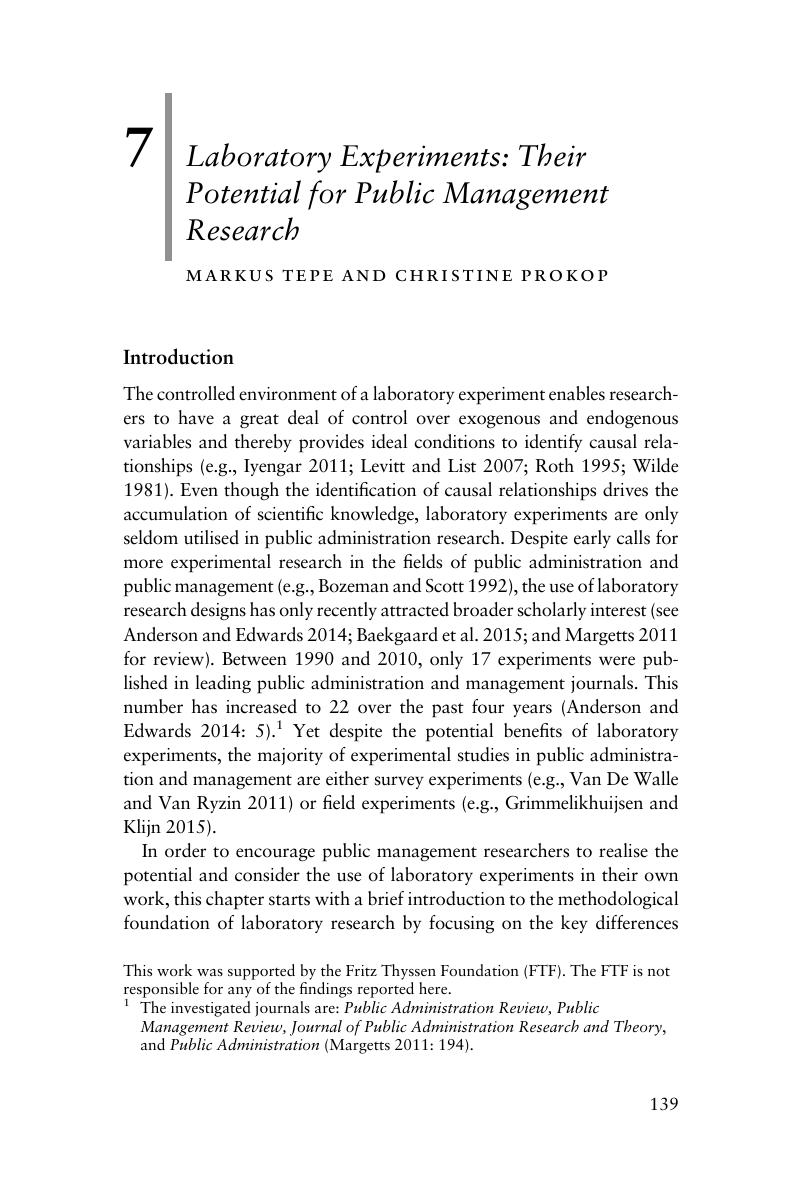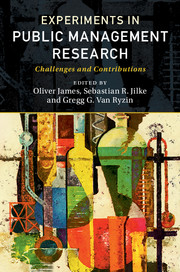Book contents
- Experiments in Public Management Research
- Experiments in Public Management Research
- Copyright page
- Contents
- Figures
- Tables
- Contributors
- Preface and Acknowledgements
- Part I Context
- Part II Methods
- 4 Causal Inference and the Design and Analysis of Experiments
- 5 Field Experiments in Public Management
- 6 Survey Experiments for Public Management Research
- 7 Laboratory Experiments: Their Potential for Public Management Research
- Part III Substantive Contributions
- Part IV Issues and Implications
- Appendix Recommended Reporting Guidelines for Experiments in Public Management, a Checklist1
- Index
- References
7 - Laboratory Experiments: Their Potential for Public Management Research
from Part II - Methods
Published online by Cambridge University Press: 27 July 2017
- Experiments in Public Management Research
- Experiments in Public Management Research
- Copyright page
- Contents
- Figures
- Tables
- Contributors
- Preface and Acknowledgements
- Part I Context
- Part II Methods
- 4 Causal Inference and the Design and Analysis of Experiments
- 5 Field Experiments in Public Management
- 6 Survey Experiments for Public Management Research
- 7 Laboratory Experiments: Their Potential for Public Management Research
- Part III Substantive Contributions
- Part IV Issues and Implications
- Appendix Recommended Reporting Guidelines for Experiments in Public Management, a Checklist1
- Index
- References
Summary

- Type
- Chapter
- Information
- Experiments in Public Management ResearchChallenges and Contributions, pp. 139 - 164Publisher: Cambridge University PressPrint publication year: 2017
References
- 10
- Cited by



